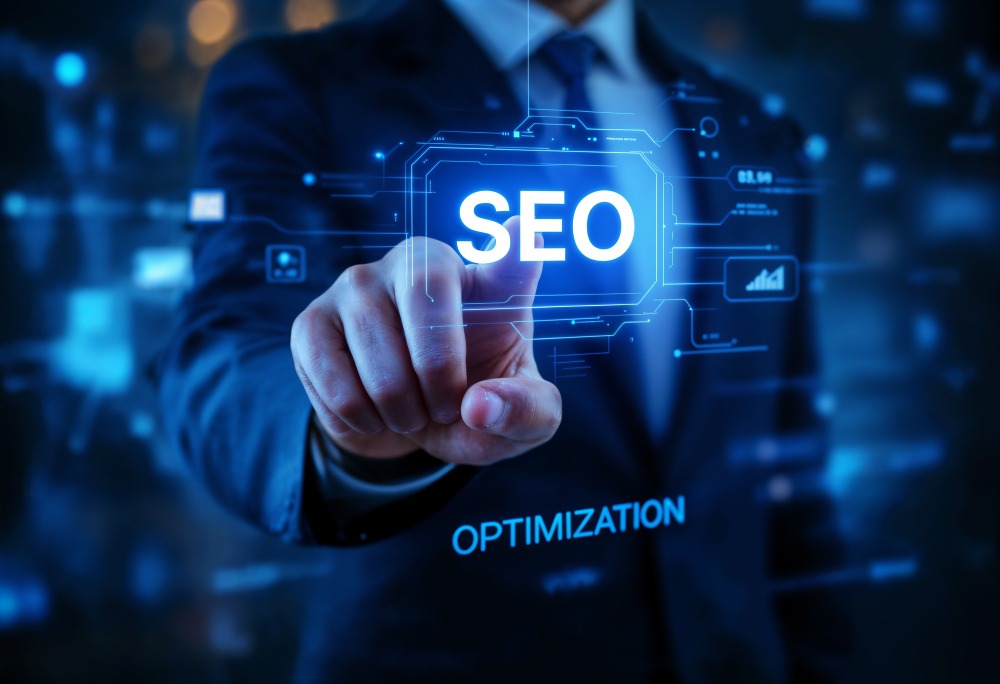In this advanced digital age businesses rely heavily on search engine optimization (SEO) to increase their online visibility and attract the right audience. While the core principles of SEO apply universally, the strategies for B2B (business-to-business) and B2C (business-to-consumer) SEO differ significantly. Understanding the differences between B2B SEO and B2C SEO is essential to designing effective marketing campaigns tailored to each audience.
What is B2B SEO?

B2B SEO focuses on optimizing a website to attract businesses as clients. The goal is to reach decision-makers, such as executives, managers, or procurement teams, who are looking for products or services that will benefit their company. B2B SEO often involves technical content, long sales cycles, and a strong emphasis on building trust and authority.
What is B2C SEO?
B2C SEO targets individual consumers. The focus is on creating engaging, easy to digest content that drives quick purchasing decisions. The sales cycle in B2C SEO is typically shorter, requiring tactics that capture attention immediately and compel action.
Key Differences Between B2B SEO and B2C SEO
1. Audience and Decision Making Process
B2B SEO
The audience in B2B SEO comprises professionals and organizations. Decisions are often made collectively and require thorough research. For example, a company looking for software solutions may involve the IT department, financial advisors and senior management before making a purchase. Understanding the differences between B2B SEO and B2C SEO helps businesses cater to this collective decision making process.
B2C SEO
In B2C SEO the audience is individuals or households. Decisions are usually personal and emotional. For instance, someone shopping for a new smartphone will prioritize features, price and reviews over a collective discussion. Recognizing these distinctions is critical in appreciating the differences between B2B SEO and B2C SEO.
2. Search Intent
B2B SEO

Search intent in B2B SEO leans heavily towards informational and navigational queries. Keywords often include search terms like “how to”, “benefits of” or “compare.” For example “How to implement CRM software” is a typical B2B query.
B2C SEO

B2C search intent is more transactional. Keywords often include action oriented phrases like “buy”, “best” or “discount.” A query like “Buy affordable running shoes” exemplifies B2C intent. These contrasting intents highlight major differences between B2B SEO and B2C SEO.
3. Content Type and Format
B2B SEO
Content in B2B SEO is detailed, data-driven and educational. Formats include whitepapers, case studies, eBooks and long-form blogs. For example, an article titled “Top 5 Strategies to Improve Supply Chain Efficiency” targets B2B readers.
B2C SEO
Content in B2C SEO is short, engaging, and visually appealing. Examples include product reviews, video tutorials, and lifestyle blogs. For example: a blog post like “5 Best Lipsticks Under $20” is perfect for a B2C audience. These preferences underline another key aspect of the differences between B2B SEO and B2C SEO.
4. Keyword Strategy
B2B SEO
Keyword strategies in B2B SEO focus on low-volume but high-value keywords. Long-tail keywords, such as “Enterprise-level project management tools,” are common. The competition is lower but the audience is more niche and targeted.
B2C SEO
B2C SEO emphasizes high volume and competitive keywords. Terms like “best smartphones” or “summer sale deals” target a broad audience and drives significant traffic. This strategic variation shows the key differences between B2B and B2C SEO.
5. Sales Funnel Approach
B2B SEO
The sales funnel in B2B SEO is complex and multi-staged. The focus is on nurturing leads through awareness, consideration, and decision-making phases. SEO efforts aim to move users through this funnel with in-depth content.
B2C SEO
B2C SEO typically follows a simpler sales funnel. Users often move from awareness directly to purchase. The SEO strategy must create urgency by using tactics like limited time offers or clear calls to action. These contrasting approaches emphasize the differences between B2B SEO and B2C SEO.
6. Link Building Strategies

B2B SEO
Link building in B2B SEO emphasizes quality over quantity. It involves securing links from authoritative industry websites, academic journals or professional networks. For example, a backlink from a respected industry publication adds credibility.
B2C SEO
B2C link building focuses on volume and engagement. Collaborations with influencers, bloggers or review sites are common. For instance, a lifestyle blogger’s review of a new skincare product can drive massive traffic. Such tactics illustrate the practical differences between B2B and B2C SEO.
7. Metrics and KPIs

B2B SEO
Key performance indicators (KPIs) in B2B SEO include lead generation, conversion rates and domain authority. Success is measured over months, focusing on long-term growth.
B2C SEO
KPIs in B2C SEO prioritize immediate results like traffic, click-through rates, and sales conversions. Metrics are often tracked daily or weekly to optimize performance. Monitoring these outcomes helps clarify the differences between B2B SEO and B2C SEO.
Challenges and Solutions in B2B and B2C SEO
Challenges in B2B SEO
- Longer Sales Cycles: Generating leads that convert can take months.
- Complex Topics: Content must be highly technical and accurate.
Solutions
- Invest in high-quality content tailored to decision-makers.
- Use advanced analytics to understand the user journey.
Challenges in B2C SEO
- High Competition: Popular keywords are highly contested.
- Short Attention Spans: Consumers may bounce quickly if not engaged.
Solutions
- Focus on strong visuals and engaging headlines.
- Optimize for mobile to cater to on-the-go users.
Examples of Successful Strategies
B2B Example
A company offering HR software could rank for “Best HR management tools for SMEs” by publishing a detailed comparison guide featuring real-world examples and user testimonials. This is a practical illustration of the key differences.
B2C Example
An online retailer could drive traffic by optimizing for “Top deals on winter clothing” with a dynamic landing page showcasing discounts, customer reviews, and quick checkout options.
For businesses looking to elevate their online presence, professional SEO services can help tailor strategies for both B2B and B2C markets. Learn more about our comprehensive SEO services designed to achieve measurable results.
Future Trends in B2B and B2C SEO

AI and Personalization
AI tools are becoming crucial in both B2B and B2C SEO. B2B can use AI to generate personalized content for specific industries While B2C brands can create highly targeted ads and recommendations. These innovations are shaping the differences between B2B SEO and B2C SEO.
Voice Search
Voice search is shaping the way users interact with search engines. B2B SEO can leverage this by optimizing for conversational keywords like “What is the best cloud storage for businesses?” On the other hand B2C SEO can target queries like “Where can I find pizza near me?”
Conclusion
Understanding the key differences between B2B SEO and B2C SEO is important for creating tailored strategies that deliver results. While B2B SEO requires a focus on long term relationships, trust and detailed content, B2C SEO thrives on quick engagement, high volume traffic and emotional appeal. By recognizing these distinctions and aligning your approach to the target audience you can maximize the effectiveness of your SEO efforts and achieve your business goals.
Frequently Asked Questions
1. How does the target audience influence SEO tactics in B2B versus B2C marketing?
B2B audiences require detailed, informative content targeting decision-makers, while B2C focuses on engaging, emotionally driven content that appeals to individual consumers.
2. What types of content are most effective for B2B SEO compared to B2C SEO?
B2B SEO benefits from case studies, whitepapers, and in-depth articles, whereas B2C SEO thrives on product reviews, short videos, and visually appealing blogs.
3. How do keyword strategies differ between B2B and B2C SEO?
B2B SEO emphasizes niche, long-tail keywords with lower search volume, while B2C SEO targets high-volume, competitive keywords aimed at a broad audience.
4. What metrics should be prioritized when measuring the success of B2B SEO versus B2C SEO campaigns?
B2B SEO focuses on lead generation and conversion rates, whereas B2C SEO prioritizes traffic, sales conversions, and click-through rates.
Image Credits: FreePik


